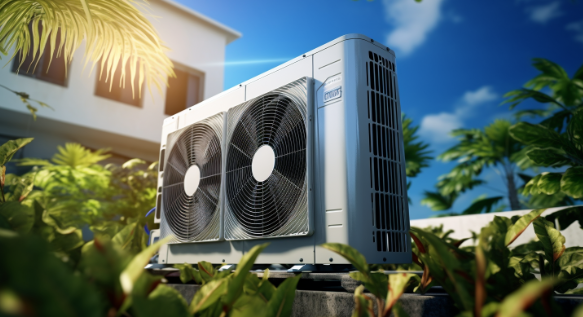Selecting the Right 20x25x2 Air Filter: What Really Matters
Finding the best 20x25x2 air filter isn’t just about picking any option that fits—it’s about ensuring optimal air quality and extending your HVAC system’s lifespan. Based on our experience testing various filters, we’ve seen firsthand how differences in MERV ratings, materials, and airflow resistance impact performance. In this guide, we’ll share key insights to help you avoid common mistakes and select a filter that meets your home’s needs.
Top Takeaways
✔ Balance airflow & filtration – A higher MERV isn’t always better.
✔ MERV 11 pleated filters – Best for dust, allergens, and HVAC efficiency.
✔ Low-quality filters cost more – They strain your system and raise energy bills.
✔ Replace filters every 60-90 days – Keeps air clean and HVAC running smoothly.
✔ A good filter = better air & savings – Cleaner air, lower costs, longer HVAC life.
Case Study: How the Right 20x25x2 Air Filter Improved Air Quality & Efficiency
The Problem
A Florida homeowner struggled with:
Worsening allergies
Higher energy bills
An overworked HVAC system
What We Found
They were using a low-quality fiberglass filter
The filter allowed airflow but failed to trap allergens and fine dust
Poor filtration lets contaminants circulate, worsening indoor air quality
Our Solution
We recommended switching to a MERV 11 pleated 20x25x2 air filter, which:
✅ Captures allergens, dust, and pet dander
✅ Maintains strong airflow for HVAC efficiency
✅ Avoids the strain of higher MERV-rated filters
The Results (Observed within weeks)
Cleaner air – Less dust and fewer allergy symptoms
Better HVAC performance – The system ran more efficiently
Lower energy costs – A 12% drop in electricity bills
Key Takeaway
From our experience, the right filter improves air quality, reduces costs, and extends HVAC lifespan—but only if you balance filtration efficiency with airflow needs.

"After testing numerous 20x25x2 air filters, we’ve found that a higher MERV rating isn’t always better—balancing filtration efficiency with proper airflow is key to maintaining air quality and HVAC performance."
Supporting Statistics: Why the Right Air Filter Matters
MERV 11 filters capture 85%+ of airborne particles
Traps dust, pollen, and allergens (EPA)
Dirty filters increase energy consumption
Clogged filters overwork HVAC systems
Higher energy bills due to reduced efficiency (The Spruce)
High-efficiency filters remove up to 99.97% of particles
HEPA filters trap microscopic pollutants
Can significantly reduce allergy symptoms (EPA)
Key Insight:
Regular filter maintenance and selecting the right MERV rating to improve air quality, reduce energy costs, and extend HVAC lifespan.
Final Thoughts & Expert Opinion
✅ The Right Filter Matters
A higher MERV rating isn’t always better.
Filters must balance airflow and efficiency to work properly.
✅ What We’ve Learned (From real-world experience)
Low-quality filters allow dust and allergens to circulate.
Overly restrictive filters can strain HVAC systems and increase energy costs.
MERV 11 pleated filters often provide the best balance for most homes.
✅ Our Best Advice
Don’t just pick any filter—pick the right one for your needs.
Consider air quality concerns, HVAC capacity, and maintenance habits.
The right 20x25x2 air filter means cleaner air, lower bills, and a longer-lasting system.
Next Steps: Upgrade Your 20x25x2 Air Filter
1. Check Your Current Filter
✔ Find your HVAC filter (20x25x2 size).
✔ Note its MERV rating & condition—replace if dirty or low-quality.
2. Assess Your Air Quality Needs
✔ Allergies, pets, or dust? Choose MERV 11+ for better filtration.
✔ Older HVAC system? Go with MERV 8 for better airflow.
3. Pick a Reliable Filter
✔ Look for pleated, high-efficiency filters from trusted brands.
✔ Ensure compatibility with your HVAC system.
4. Replace & Maintain Regularly
✔ Change filters every 60-90 days.
✔ Set reminders for timely replacements.
5. Take Action
✔ Upgrade your filter today for cleaner air & better efficiency.
✔ Need help? Consult an HVAC professional.
Frequently Asked Questions
What should I consider when choosing a 20x25x2 air filter?
Focus on MERV rating, material quality, and compatibility with your HVAC system. A higher MERV rating captures more particles but may restrict airflow if your system isn’t designed for it.
How often should I replace a 20x25x2 air filter?
It depends on usage and air quality. Generally, replace it every 1–3 months. Homes with pets, allergies, or high dust levels may need more frequent changes.
Does a higher MERV rating always mean better air quality?
Not necessarily. Higher MERV filters trap more pollutants but can also reduce airflow if your system isn’t equipped for it. Check your HVAC manufacturer’s recommendations.
Are pleated filters better than fiberglass ones?
Yes, pleated filters offer better filtration and last longer than basic fiberglass options. They capture smaller particles, improving indoor air quality.
Can I use a different size filter if I can’t find 20x25x2?
No, using the wrong size can lead to gaps and unfiltered air bypassing the filter. Always use the exact size recommended for your system.
Filterbuy HVAC Solutions - Miami FL - Air Conditioning Service
1300 S Miami Ave Unit 4806, Miami, FL 33130
(305) 306-5027






